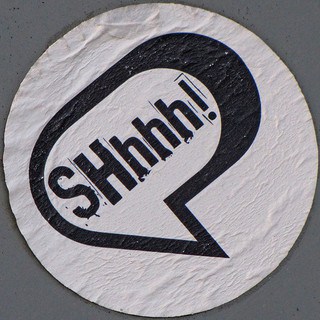Warning: I am about to link to a song that has a higher-than-average ability to tunnel into your brain for the next 48 hours:
Over at The Awl, Jeremy Mesiano-Crookston, a self-described “lapsed Catholic,” sought to find out just what the sound of silence actually is. He corresponded with four Trappist Monks about their efforts to “cultivate silence” within their monastic enclosure. What he found is well worth reading. One monk wrote:
Silence does make me aware of my inner workings, however, what we call in the monastery, “self-knowledge.” I can’t pretend that I’m always a nice guy, always patient, always calm and receptive. I have to admit that I can be abrupt, cold to offenders, or would often prefer efficiency to the messiness of other people’s moods. Silence seems to keep me from idealizing myself.
It’s easy to have an image of monks as scary ascetics, levitating in their cells or keeping bizarre fasts and outdated penances. After all, if they’re that weird, they can be easily ignored. But it seems that monks wrestle with many of the same issues that we do. Another monk wrote:
I worry and pray about world poverty, overpopulation, consumerism, the moral bankruptcy of laissez-faire capitalism, the polarized, simplistic “thinking” in our country; about the public face and stupid blunders of the Catholic Church, about politicians who capitalize on religion; about veterans, war refugees, migrant workers; about people in jail (I used to do intervention work in the Criminal Justice System and in the inner city) and people with no meaning in their lives. I didn’t come here to get out of the real world but to get perspective on the real world.
And if it’s the sound of silence that gives perspective on the real world, then perhaps those of us not in monasteries need to listen even more closely.


